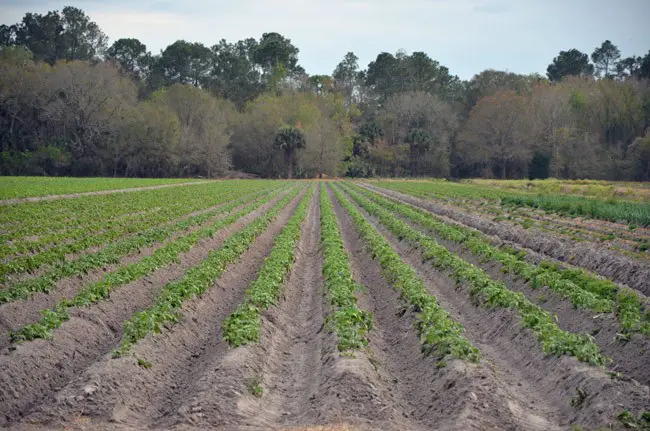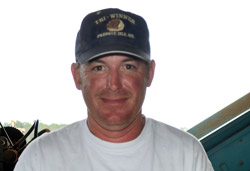
The last time there was an election for the Flagler County Soil and Water Conservation Board, nobody ran. Not even the two incumbents on the board—Sam Bertha Jr. and Kevin Waters.
Bertha, of Bertha Farms in western Flagler County, had not even been aware that he was up for reelection. Waters had attended a few meetings at the beginning of his term but then stopped.
There will not be a next time. Flagler County’s Soil and Water Conservation Board is no more. Agriculture Commissioner Adam Putnam dissolved the board last Sept. 11. The fact emerged only this week as Supervisor of Elections Kaiti Lenhart was preparing for the coming election cycles, and she was notified by the state Department of Putnam’s action last September.
“All five seats on the Board of Supervisors have been vacant since 2011 and remained vacant through the 2012 election cycle when no candidates qualified for any seats on the board,” a release Lenhart’s office circulated today states.
In April, the state Department of Economic Opportunity—that is, the state’s labor department—had informed Putnam of the board’s inactivity in recent years. The board had not conducted required audits and financial reporting requirements. In August, the state Office of Agricultural Water Policy published a newspaper notice twice (once on two successive weeks), apparently in the News-Tribune, seeking comments or objections to the proposed dissolution of the district.
Putnam’s office then ruled that the Flagler’s board’s “continued operation is not administratively practicable and feasible” under the law, and dissolved it.

The money was used for “small projects that had to do with the farming community,” DeLorenzo said. One of those was the community garden project that has since been overseen by Cheryl Massaro, the director of the Flagler County Youth Center and the Carver Center in Bunnell.
The board was also a member of various associations which required dues, though the Flagler board was able to waive those dues under a hardship provision, DeLorenzo said. The board, he remembers, would meet a half dozen times a year.
Water conservation boards are the product of the Dust Bowl era. They were created in 1937 in Florida, part of a national effort to stem the sort of catastrophic soil-erosion crisis that struck the Midwest and West in the early 1930s, an era immortalized in John Steinbeck’s “Grapes of Wrath.” The water conservation aspect of the boards’ purpose was then largely assumed by the state’s water management districts which, in their earlier incarnation starting in 1969, before they became an adjunct of Florida’s development community, put a premium on conservation. That priority began to erode in the 1980s and became a footnote with development’s acceleration in the 1990s and 2000s.
In more recent years, the Scott administration has shrunk the responsibilities of water management districts much as soil and water conservation district’s responsibilities were shrunk in the past: by diminishing their budgets.
For Flagler County, the most immediate result of the dissolution of the conservation board is that there will be one fewer set of elections.
![]()
Flagler County Soil and Water Conservation Board Dissolution






























Glory Ah says
When are they going to dissolve the Palm Coast city council? They don’t do anything either .